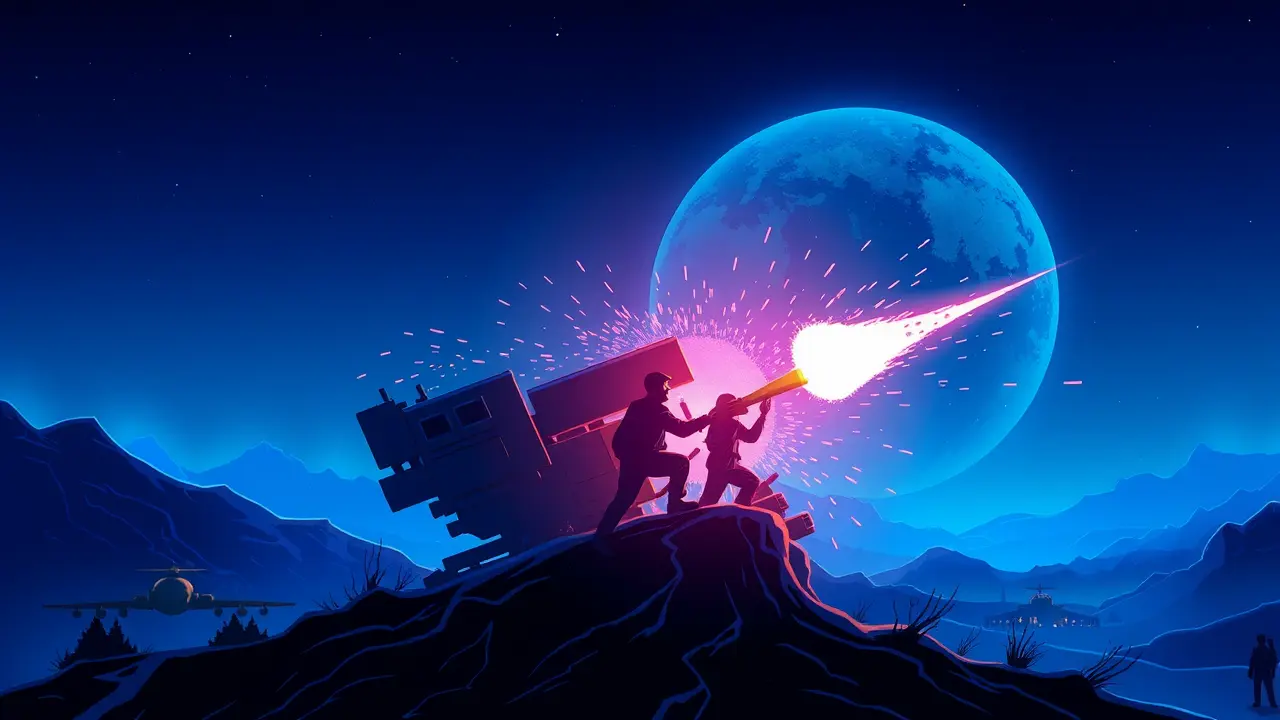
Politicsconflict & defenseMilitary Operations
Israel Threatens to Escalate Strikes Against Hezbollah in Lebanon.
JO
John Parker
21 hours ago7 min read
The fragile calm along the Israel-Lebanon border shattered with explosive force today as Israeli officials issued a stark threat to escalate military strikes against Hezbollah, a warning delivered mere hours after Israel confirmed the targeted killing of four Hezbollah operatives. This isn't merely a tit-for-tat skirmish; it's a deliberate ratcheting up of rhetoric and action that threatens to plunge the entire region back into a devastating conflict.The recent killings, precise and lethal, represent a significant escalation in a low-grade war that has simmered since October 8th, a conflict fought in the hills and villages of southern Lebanon but with implications stretching from Tehran to Washington. Hezbollah, a Iranian-backed Shi'ite militant group with a formidable arsenal of over 150,000 rockets and a battle-hardened cadre of fighters from the Syrian civil war, is no mere militia; it is a state-within-a-state, a force that rivals the Lebanese army itself.For months, the cross-border exchanges have followed a grim, almost ritualistic pattern—rocket fire, artillery duels, drone strikes—but always contained, always below the threshold that would trigger an all-out war. That threshold now appears dangerously porous.Israeli Defense Minister Yoav Gallant, in a statement dripping with intent, declared that his forces are 'prepared to intensify operations immediately,' a clear signal that the rules of engagement have changed. The strategic calculus for Israel is complex and fraught with peril.On one hand, the northern front has remained a persistent, bleeding wound, forcing the evacuation of approximately 60,000 Israelis from border communities and creating a political pressure cooker for Prime Minister Benjamin Netanyahu's war cabinet. The stated goal is to push Hezbollah north of the Litani River, a demand enshrined in the oft-violated United Nations Security Council Resolution 1701 that ended the 2006 Lebanon War.On the other hand, a full-scale invasion of Lebanon would be a logistical and human nightmare, a bloody urban and mountainous warfare scenario that would likely result in thousands of casualties on both sides and could trigger a wider regional war involving Iran directly. Hezbollah's leader, Hassan Nasrallah, has repeatedly boasted that his forces possess precision-guided missiles capable of striking deep into Israel's strategic infrastructure, including air bases and the densely populated Tel Aviv metropolis.The group's recent deployment of anti-aircraft fire and more sophisticated drones demonstrates an evolving tactical capability that Israeli planners cannot ignore. Meanwhile, in Beirut, the Lebanese government, perpetually weak and fractured, watches with a sense of impending doom, its economy in freefall and its sovereignty utterly compromised by Hezbollah's armed dominance.The international community, led by American and French diplomats, is engaged in a frantic, last-ditch shuttle diplomacy, attempting to broker a de-escalation that would see Hezbollah pull its forces back and allow displaced Israeli civilians to return home. Yet, these efforts have thus far yielded little but statements of concern.The assassination of senior Hezbollah commanders, a tactic Israel has used for decades, is a high-risk gambit; while it degrades the enemy's command structure, it also invites devastating retaliation. The memory of the 2006 war, which killed over 1,200 Lebanese and 165 Israelis and caused billions in damage, hangs heavy over the blue-lit situation rooms in both Jerusalem and southern Beirut.The next 48 to 72 hours will be critical. Will Hezbollah respond with a massive rocket barrage on Haifa or Tel Aviv, an act that would guarantee an overwhelming Israeli response? Or will it opt for a more measured, though still painful, retaliation, keeping the conflict within its current, volatile container? The world holds its breath, watching two heavily armed adversaries dance on the edge of an abyss, with the people of Lebanon and northern Israel once again caught in the crossfire of a geopolitical struggle they did not choose.
#Israel
#Hezbollah
#Lebanon
#ceasefire
#disarmament
#strikes
#conflict
#featured
Stay Informed. Act Smarter.
Get weekly highlights, major headlines, and expert insights — then put your knowledge to work in our live prediction markets.
© 2025 Outpoll Service LTD. All rights reserved.